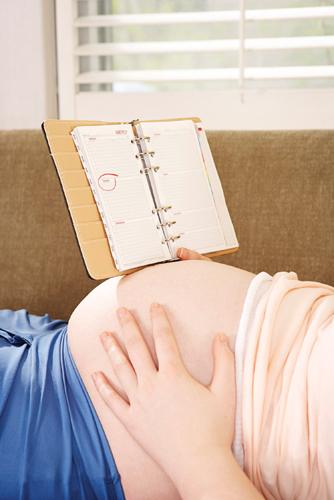Natural inductions

Midwife Vicki Nolan Marnin reminds us that women are not machines and that a due date does not necessarily mean a baby is ready to be born. However, she adds that after 39 weeks of pregnancy, there are some methods that can be used at home to help to encourage labor.
Intimacy
One of the best ways to encourage birth is through sex. Schedule a few date nights that end with some intimate time with your partner. Sperm contains prostaglandins (hormones that help thin and dilate the cervix, ripening it for delivery), and orgasm will release the hormone oxytocin (which can also trigger contractions). If nothing else, intimacy before giving birth will help you relax a little and allow you and your partner to feel more connected as a couple.
Acupuncture
Marnin notes that her patients have had great success with using acupuncture to encourage cervical ripening and labor. According to a study at the University of North Carolina, 70 percent of women who used acupuncture went into labor on their own. The women who had acupuncture in the third trimester were also found to be less likely to deliver by cesarean section.
Caulophyllum
This homeopathic remedy, when taken in the last weeks of pregnancy, will help tone the uterus and produce good contractions, potentially lessening the amount of time spent in labor. Take note, though, that it should only be used under the guidance of a naturopath or midwife.
Exercise
Walking during your last trimester may help draw your baby down into the pelvis and prime the cervix for labor. It also is a good way to improve your energy stores during those last few (often draining) weeks.
Castor oil
Although Marnin cautions that this is generally a “last resort” for women who want to prevent a medical induction, castor oil can stimulate your bowels and in turn irritate your uterus, causing it to start contracting. There are some less-than-pleasant side effects that can result, however, so castor oil should be taken sparingly and with caution.







